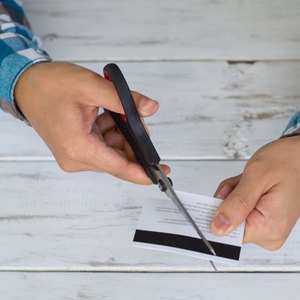
Pending charges on a credit card are common; often, when you use your credit card to buy something, it may take a few days for the transaction to permanently post. This means that the charge you made is waiting for authorization from the credit card issuer, leaving it in the "pending charges" limbo. Within a few days, such authorizations are usually replaced by the finalized transaction amount and your card is charged. If you have pending charges and you want to cancel your credit card, the issuer may not permit you to close the card. If the issuer closes the card either on its own or upon your request, you will still be responsible for the charges.
Tips
You will still be responsible for any pending charges on your credit card if you cancel the card before the charges post. However, your credit card company may not allow you to close the card if charges are pending.
Understanding Pending Charges
A "pending" charge on a credit or debit card is an authorization hold placed on the account for a certain amount of money while the credit card issuer determines whether the charge can be made. On average, a pending charge lasts between 24 to 72 hours. It is typically replaced by the actual amount of the transaction, so that the pending and final charge amounts will be the same. Occasionally, however, the amount of the final charge is unknown, so the two amounts are different, such as when a person pays for gas at the pump or when you pay for a meal on your credit card and add a tip to the total. In either case, the estimated pending amount is later replaced by the actual purchase amount. If a transaction is never completed, the hold is eventually released and funds once again made available for the cardholder.
Being Aware of Your Liability
Whether you'll be able to close your account if your card has pending charges depends on the policy of the card issuer. Most credit card companies will not allow you to voluntarily close your account if you have charges pending. If you are delinquent in your payments, the credit card issuer may close your card on its own. Even if you are permitted to close the credit card, or if the issuer closes the card, you are still liable for any charges made to the card, regardless of when those charges finally post. Therefore, so long as your account has a balance, you will continue to receive statements and be expected to pay off the balance.
References
- Credit Cards: How to Cancel a Credit Card
- Nerd Wallet: Closing a Credit Card? Make Sure to Do These 5 Things
- The Simple Dollar: What Happens When You Cancel a Credit Card?
- Consumer Financial Protection Bureau. "Requirements for Over-the-Limit Transactions." Accessed Jun 18, 2020.
- Experian. "What is a Credit Utilization Rate?" Accessed June 18, 2020.
- Experian. "What Is a Penalty APR?" Accessed June 18, 2020.
- Consumer Financial Protection Bureau. "Why Did My Credit Card Issuer Increase My Late Payment Fee?" Accessed June 18, 2020.
- Consumer Financial Protection Bureau. "Can My Credit Card Company Charge a Fee Based on How I Paid My Bill, Such as for Making a Payment Over the Phone?" Accessed June 18, 2020.
Writer Bio
Based on the West Coast, Mary Jane Freeman has been writing professionally since 1994, specializing in the topics of business and law. Freeman's work has appeared in a variety of publications, including LegalZoom, Essence, Reuters and Chicago Sun-Times. Freeman holds a Master of Science in public policy and management and Juris Doctor. Freeman is self-employed and works as a policy analyst and legal consultant.

